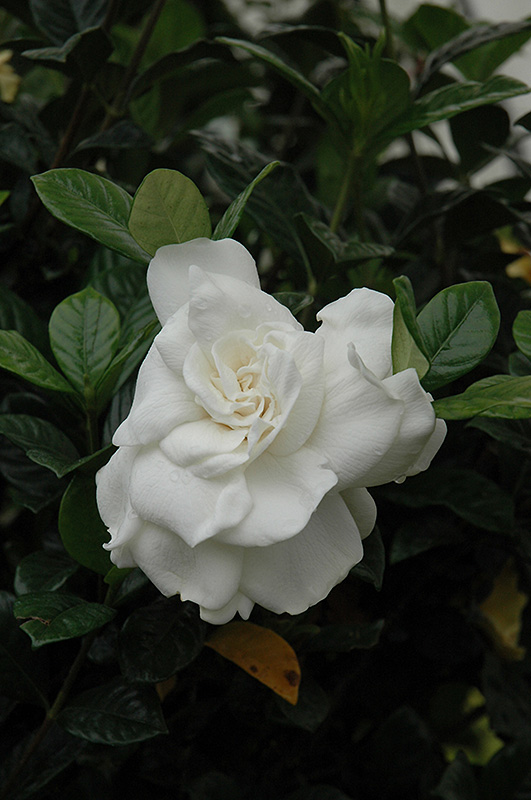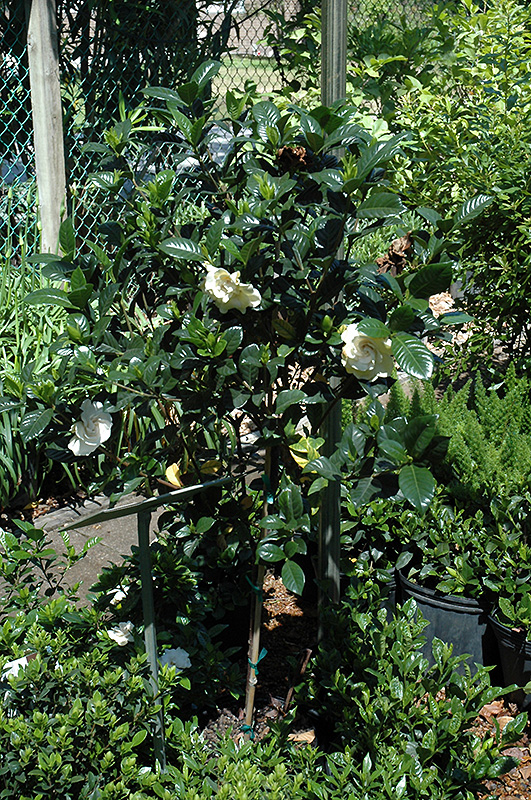>> Home
Gardenia (tree form)
Gardenia jasminoides '(tree form)'
Height: 6 feet
Spread: 3 feet
Sunlight:
![]()
![]()
Hardiness Zone: 7b
Description:
An interesting small accent tree, with large, sweetly fragrant, elegant white flowers contrasted by deep green foliage; a wonderful garden accent plant that also looks great in containers; water more often in extreme heat
Ornamental Features
Gardenia (tree form) features showy fragrant double white flowers at the ends of the branches from early to late summer. The flowers are excellent for cutting. It has dark green evergreen foliage. The glossy pointy leaves remain dark green throughout the winter.
Landscape Attributes
Gardenia (tree form) is a dense evergreen tree, selected and trained to grow in a small tree-like form with the primary plant grafted high atop a standard. Its average texture blends into the landscape, but can be balanced by one or two finer or coarser trees or shrubs for an effective composition.
This is a relatively low maintenance tree, and should only be pruned after flowering to avoid removing any of the current season's flowers. It is a good choice for attracting bees and butterflies to your yard. It has no significant negative characteristics.
Gardenia (tree form) is recommended for the following landscape applications;
- Accent
- Mass Planting
- General Garden Use
Planting & Growing
Gardenia (tree form) will grow to be about 6 feet tall at maturity, with a spread of 3 feet. It tends to be a little leggy, with a typical clearance of 3 feet from the ground, and is suitable for planting under power lines. It grows at a slow rate, and under ideal conditions can be expected to live for approximately 30 years.
This tree does best in full sun to partial shade. It does best in average to evenly moist conditions, but will not tolerate standing water. It is not particular as to soil pH, but grows best in rich soils. It is somewhat tolerant of urban pollution. Consider applying a thick mulch around the root zone in winter to protect it in exposed locations or colder microclimates. This is a selected variety of a species not originally from North America.

